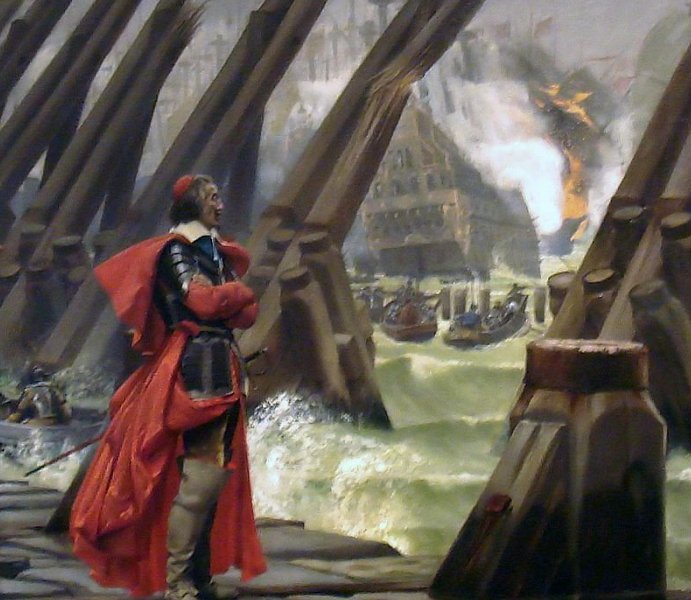Cardinal Richelieu ‘Red Eminence’ – One Of The Greatest Politicians In French History
A. Sutherland - AncientPages.com - Cardinal Richelieu (1585-1642) known as the "Red Eminence" was a political genius and a French statesman who created the power of France and absolute monarchy. He was Cardinal from 1622 and Duke of Richelieu and Fronsac from 1631 and the one who broke the power of the Huguenots (French Protestants) who followed Calvinism.
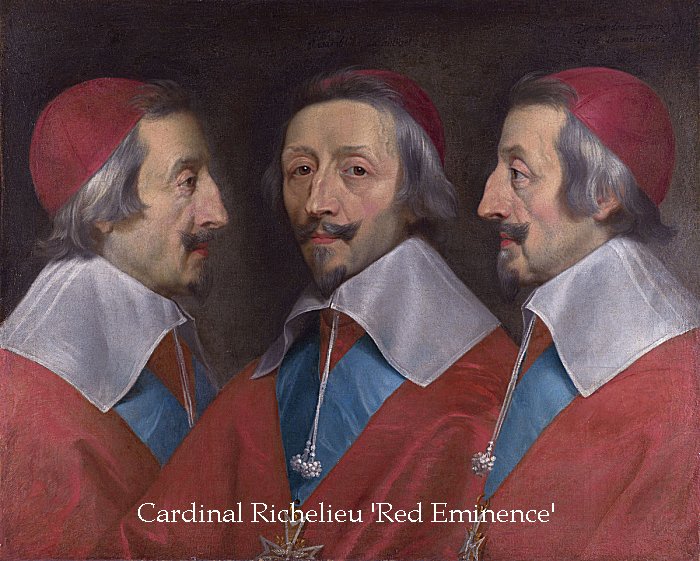 Image credit: Philippe de Champaigne - National Gallery - Public Domain
Image credit: Philippe de Champaigne - National Gallery - Public Domain
He introduced France into the Thirty Years' War hoping that after its end, the King of France will be the ruler of neighboring countries. He believed that the king had the divine right to promote peace and order in society. Richelieu followed the maxim that "the ends justify the means."
He had the ability to find himself in the right place and time, a gift, which usually people’s careers relied on.
One Goal, Tough Methods
Richelieu had one and clear goal - the monarchy and he had huge ambitions to achieve far-reaching power.
Undoubtedly, he was a person, with extraordinary ability to analyze all the circumstances of the political game very quickly and to draw right the conclusions. In fact, in Richelieu’s biography, there are not many tactical decisions that could be questioned.
Career Was Fast
Richelieu was the third son of the Lord of Richelieu. He was not a rich man and at first, he only administered a small and poor diocese. This man thanks his brilliant brain and extraordinary abilities come to dominate France from 1624 to 1642.
In 1606, Richelieu was appointed by King Henry IV bishop of Luçon and in November 1616, he entered the Royal Council as head of the diplomacy. He was an educated, handsome, elegant, eloquent 31 years old bishop and politician who had good relations with everyone around him, including Louis XIII, important princes, and other prominent figures, the Paris Parliament.
In 1622, thanks to the protection of Louis XIII's mother, Marie de Médicis, Pope Gregory XV appointed him Cardinal.
As early as in 1624, he was appointed by Louis XIII as the prime minister of France. He became a prominent figure in French politics and skillfully faced the atmosphere of plots, intrigues, and political maneuvers of all kinds.
He soon began to overcome many political adversities. His intellect was powerful, analytical and largely relied on reason, strong will, and the ability to rule others. Richelieu used political power very effectively, but it was not an easy task.
He was subjected to terrible pressure and intrigues within the country and external enemies. Richelieu had many enemies who tried (though unsuccessfully) to harm him. A dozen conspiracies and plots have been tied to the cardinal's life but he managed to calm everyone.
Henri Motte's depiction of Cardinal Richelieu at the Siege of La Rochelle. Image credit: Henri-Paul Motte - Musée d'Orbigny Bernon - Public Domain
He had to conduct foreign policy towards about 65 hostile and foreign political subjects and some hostile rebel national centers. It required extraordinary political skills to win with them and most of time, Richelieu succeeded. His central power center in Paris had only commanding messengers carrying out orders.
Most important letters were encrypted by his office that could also broke other codes. The cardinal also invented the first real political newspaper.
Defeat Of The Huguenots And Granting Of Freedom Of Religion
In the years 1625-1628 he waged war against the Huguenots, one of the main forces opposed to the king.
Having defeated the Huguenots in 1629, he issued an edict of grace that ordered the Huguenots to resign from political independence and give back fortresses, but at the same time he guaranteed freedom of religion. On November 11, 1630 he was appointed Minister of France.
Strengthening Absolutism And Weakening Of Aristocratic Power
Without mercy, he broke the nobility's opposition. He introduced a number of reforms including weakening the position of the aristocracy. In 1630, he forbade the aristocrats to trade, and shortly thereafter, he forbade them to conduct private wars and to have fortified castles (existing ones were to be bought out).
His Accomplishments For France Were Significant
Richelieu is considered one of the creators of the strong royal authority in France. He reformed the country’s navy and army. He also defeated rebellions and advanced royal absolutism. He wanted to make France the greatest power in Europe using his tough and ruthless but apparently efficient methods.
It was said that people either liked Richelieu or hated him, there was no other alternative.
Weakening Health And Death
In November 1642, he fell ill. He died on the 4th December 1642. Before his death, he wrote to Louis XIII:
"I have the consolation of leaving your kingdom in the highest degree of glory and of reputation."
Patience and stubbornness were one of the cardinal's political weapons. Dying, advised by his confessor to forgive all his enemies, he declared: "I have no enemies but France has many enemies."
Written by – A. Sutherland - AncientPages.com Senior Staff Writer
Copyright © AncientPages.com All rights reserved. This material may not be published, broadcast, rewritten or redistributed in whole or part without the express written permission of AncientPages.com
Expand for referencesBurckhardt Carl J. Richelieu: His Rise to Power
Blanchard J-V. Éminence: Cardinal Richelieu and the Rise of France
More From Ancient Pages
-
 2,000-Year-Old Roman House Discovered In Malta
Archaeology | Jul 27, 2023
2,000-Year-Old Roman House Discovered In Malta
Archaeology | Jul 27, 2023 -
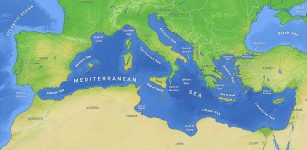 Mediterranean Migration Was Low Over 8,000 Years – New Study
Archaeology | Mar 3, 2021
Mediterranean Migration Was Low Over 8,000 Years – New Study
Archaeology | Mar 3, 2021 -
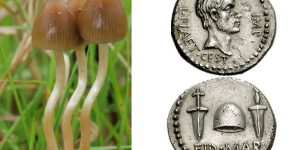 Strange Tale How The Liberty Cap Mushroom Got Its Name Starts In Ancient Rome
Featured Stories | Sep 3, 2023
Strange Tale How The Liberty Cap Mushroom Got Its Name Starts In Ancient Rome
Featured Stories | Sep 3, 2023 -
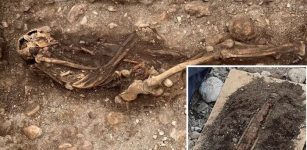 Unusual Iron Age Burial With Warrior And Sword Discovered On Gotland, Sweden – Was He From The Roman Empire?
Archaeology | Sep 7, 2021
Unusual Iron Age Burial With Warrior And Sword Discovered On Gotland, Sweden – Was He From The Roman Empire?
Archaeology | Sep 7, 2021 -
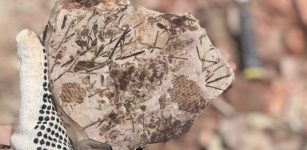 Long-Lost Paleontological Site With More Than 100 Unique Fossils Re-Discovered In Brazil
Archaeology | Jul 4, 2022
Long-Lost Paleontological Site With More Than 100 Unique Fossils Re-Discovered In Brazil
Archaeology | Jul 4, 2022 -
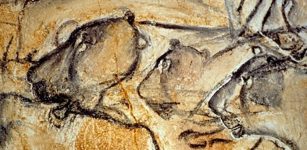 Chauvet-Pont d’Arc Cave And Surrounding Landscape – What Did The Ancient Artists See?
Archaeology | Apr 29, 2021
Chauvet-Pont d’Arc Cave And Surrounding Landscape – What Did The Ancient Artists See?
Archaeology | Apr 29, 2021 -
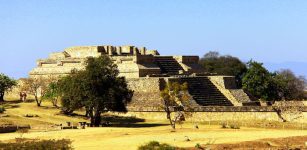 Why Do Some Cities Only Last A Century While Others Prosper For A Thousand Years Or More?
Archaeology | Mar 6, 2023
Why Do Some Cities Only Last A Century While Others Prosper For A Thousand Years Or More?
Archaeology | Mar 6, 2023 -
 Izanagi And Izanami In Shinto Beliefs And How They Created The World
Featured Stories | Mar 28, 2019
Izanagi And Izanami In Shinto Beliefs And How They Created The World
Featured Stories | Mar 28, 2019 -
 Unearthing South Australia’s Oldest Known Shipwreck: The Bark South Australian (1837)
Archaeology | Aug 16, 2023
Unearthing South Australia’s Oldest Known Shipwreck: The Bark South Australian (1837)
Archaeology | Aug 16, 2023 -
 How Ancient Cultures Explained Comets And Meteors
Archaeoastronomy | Jun 5, 2019
How Ancient Cultures Explained Comets And Meteors
Archaeoastronomy | Jun 5, 2019 -
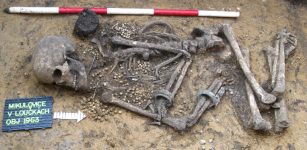 Central European Prehistory Was Highly Dynamic – New Study Shows
Archaeology | Aug 27, 2021
Central European Prehistory Was Highly Dynamic – New Study Shows
Archaeology | Aug 27, 2021 -
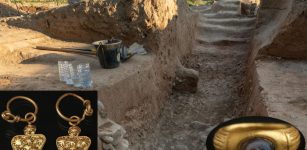 Magnificent Etruscan Underground Burial With Beautiful Artifacts Discovered In Aleria-Lamajone, France
Archaeology | May 13, 2022
Magnificent Etruscan Underground Burial With Beautiful Artifacts Discovered In Aleria-Lamajone, France
Archaeology | May 13, 2022 -
 Intact 1,800-Year-Old Roman Sarcophagus With Unexpected Treasures Found In France
Archaeology | Sep 26, 2023
Intact 1,800-Year-Old Roman Sarcophagus With Unexpected Treasures Found In France
Archaeology | Sep 26, 2023 -
 Amazing Margate Shell Grotto – Kent’s Greatest Mystery
Featured Stories | Jun 10, 2014
Amazing Margate Shell Grotto – Kent’s Greatest Mystery
Featured Stories | Jun 10, 2014 -
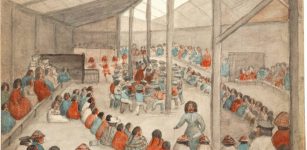 Potlatch: Ancient North American Indian Tradition Of Very Generous Gift Giving
Ancient Traditions And Customs | Sep 12, 2016
Potlatch: Ancient North American Indian Tradition Of Very Generous Gift Giving
Ancient Traditions And Customs | Sep 12, 2016 -
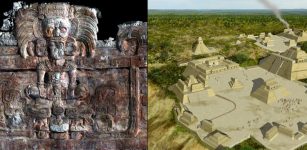 Spectacular Discovery Of Ancient Tombs Beneath Maya Pyramids Can Unravel The Mystery Of The Snake Kings
Archaeology | Oct 17, 2016
Spectacular Discovery Of Ancient Tombs Beneath Maya Pyramids Can Unravel The Mystery Of The Snake Kings
Archaeology | Oct 17, 2016 -
 Secrets Of Neanderthals’ 130,000-Year-Old Carved Bear Bone Found In The Carpathian Mountains
Archaeology | May 24, 2024
Secrets Of Neanderthals’ 130,000-Year-Old Carved Bear Bone Found In The Carpathian Mountains
Archaeology | May 24, 2024 -
 Evidence People Lived In Australian Desert 50,000 Years Earlier Than Previously Thought
Archaeology | Sep 22, 2018
Evidence People Lived In Australian Desert 50,000 Years Earlier Than Previously Thought
Archaeology | Sep 22, 2018 -
 Mysterious Bronze Age ‘Golden Tomb’ Unearthed In Armenia
Archaeology | Mar 3, 2023
Mysterious Bronze Age ‘Golden Tomb’ Unearthed In Armenia
Archaeology | Mar 3, 2023 -
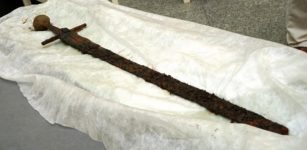 Unique Medieval Perfectly Preserved Sword Found In The Odra River, Poland
Archaeology | Aug 12, 2020
Unique Medieval Perfectly Preserved Sword Found In The Odra River, Poland
Archaeology | Aug 12, 2020

